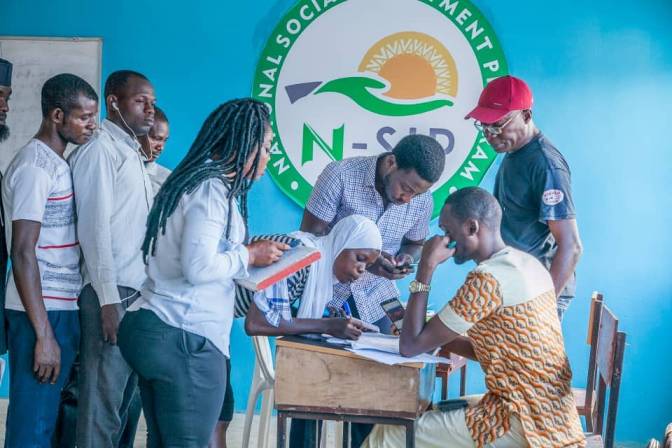Npower beneficiaries have again called on President Bola Tinubu to order the release of funds to settle the outstanding payment to those captured under the scheme.
The association’s leader, Comrade Muhammad Abubakar, expressed frustration with the federal government for neglecting a long-standing issue that affects over 400,000 Nigerian youths.
He stated that despite numerous written and verbal requests, the government has not taken any significant action to settle those impacted by the Npower programme.
Related Articles:
- NSIPA refutes report on outstanding payments to Npower beneficiaries
- FG revamps Npower programme, changes name to Skill to Wealth
- Npower beneficiaries’ expectant as FG reopens NSIPA’s account
In a phone interview with our reporter, Abubakar appealed to President Tinubu, to address the challenge faced by hardworking young Nigerians who have committed their time and effort to meet the programme’s requirements.
He raised concerns that the government engaged the youths since 2022 to work in various roles across schools, agencies, and certain ministries, offering a monthly stipend of N30,000 for graduates and N10,000 for non-graduates.
However, the beneficiaries only received payment for three months, leaving nine months outstanding.
Some Npower beneficiaries have taken to the social media to criticize the current administration for failing to fulfill its promises.
Samuel Laurence commented on Facebook, saying, “it has been far too long since the investigation began. They should not forget that beneficiaries have not been paid for over two years.”
The N-Power programme is a federal initiative, launched under former President Muhammadu Buhari, aimed at addressing youth unemployment by providing opportunities for skill acquisition and development.
The programme was designed to empower young Nigerians aged 18 to 35 with the skills necessary for the job market and entrepreneurship, thereby enhancing their employability and social development.
Additionally, it aimed at improving public service delivery by aligning skill acquisition with the actual needs of the marketplace.






